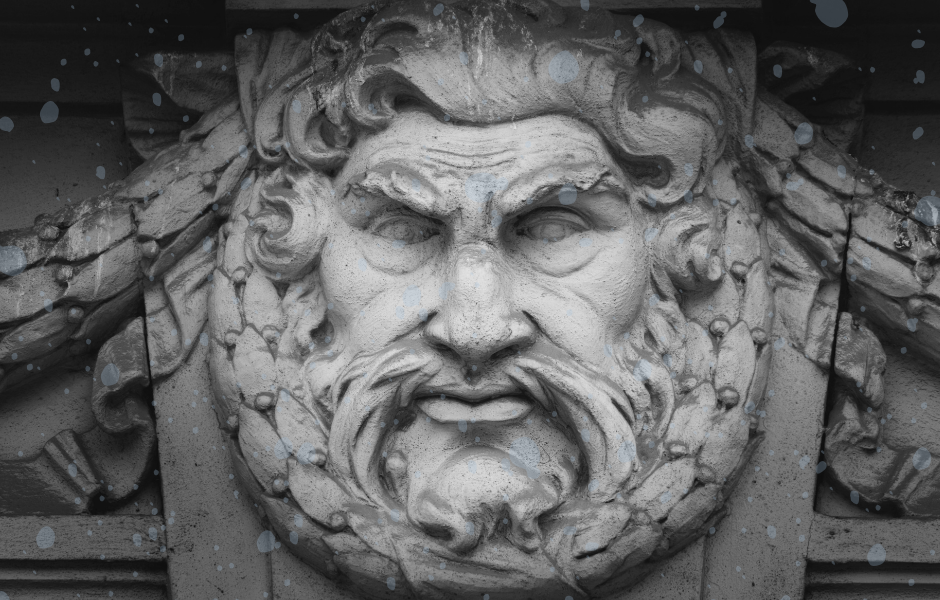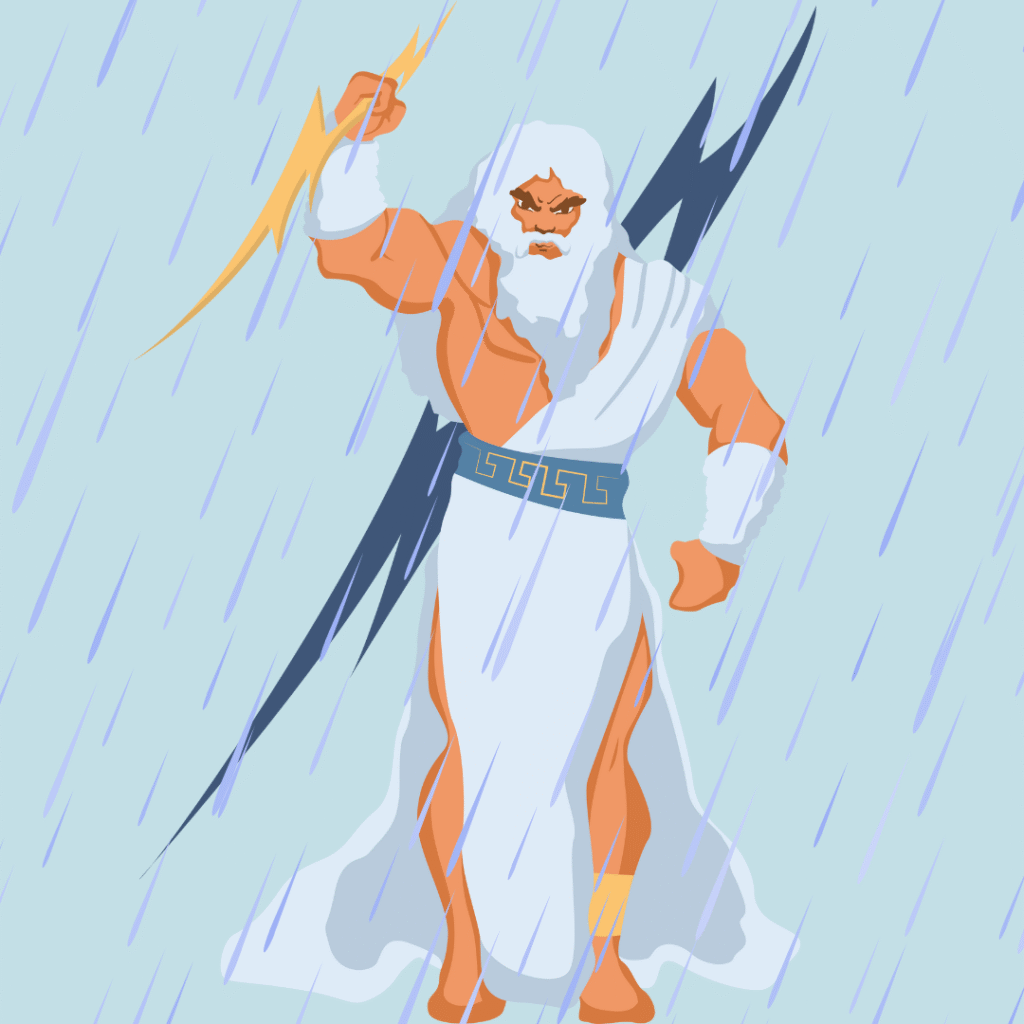
This children’s article, Was Zeus real?, has been written for native English speakers and learners of English as a second or foreign language. It can help children practise reading and comprehension, learn useful vocabulary, and explore history, myths, and ancient beliefs. Written by Mark Pulley, a writer and teacher who creates fun and informative news articles for English learners.
Who was Zeus?
In ancient Greece, people believed in many gods and goddesses. The most powerful of all was Zeus. He was the king of the gods and ruled the sky. People said he could throw thunderbolts and control the weather. His home was high on Mount Olympus, where he lived with the other gods.
Zeus was said to have many children, like Athena (goddess of wisdom) and Apollo (god of the sun). People told myths about him to explain how the world worked. These stories were passed down for hundreds of years.
Did people believe he was real?
Yes! Around 2,500 years ago, the ancient Greeks truly believed that Zeus was real. They built huge temples in his honour, including one of the most famous, the Temple of Zeus in Olympia. They even held the Olympic Games to please him!
To ask for help or say thank you, people gave offerings at temples, things like food, animals, or beautiful objects. Some believed that if Zeus was angry, he might send storms or bad luck.
Was he a real person?
There’s no evidence that Zeus was ever a real human. He was a part of Greek religion, not history. That means he existed in stories and beliefs, but not as a real man walking around ancient Greece.
Still, the idea of Zeus was very important. He helped bring people together, guide their behaviour, and explain natural events they couldn’t understand, like thunder and lightning.
Why do we still talk about him?
Zeus may not have been real, but his stories are still exciting today. They appear in books, cartoons, films and even video games. The myths of Zeus help us understand ancient Greek culture and how people thought long ago.
Also, many English words come from Greek myths. For example, “Olympian” comes from Mount Olympus and can mean something powerful or heroic.
So… was Zeus real?
Not in the way you or I are real. But he was very real in the minds of the ancient Greeks. His stories helped shape one of the most important cultures in history, and they still inspire people today.

Article vocabulary list
- Zeus – The king of the gods in ancient Greek mythology.
- Myths – Old stories, often with gods or magical creatures, told to explain the world.
- Offerings – Gifts given to a god to show thanks or ask for help.
- Religion – A set of beliefs about gods or a higher power, often with rules and stories.
- Olympian – Someone or something related to Mount Olympus or the ancient Greek gods.
Comprehension questions
Just click the plus (+) to see the answer
1. Who was Zeus?
a) A Greek king
b) A god of the sky in ancient myths
c) A famous warrior
Answer: b) A god of the sky in ancient myths
2. What did ancient Greeks believe Zeus could do?
a) Cook magical meals
b) Travel through time
c) Control the weather and throw thunderbolts
Answer: c) Control the weather and throw thunderbolts
3. What is a myth?
a) A scientific fact
b) A made-up story to explain the world
c) A list of rules
Answer: b) A made-up story to explain the world
4. Where did Zeus live in the myths?
a) In a palace in Athens
b) Under the sea
c) On Mount Olympus
Answer: c) On Mount Olympus
5. Why do people still talk about Zeus today?
a) Because he is a real god
b) Because he was a king
c) Because his stories are still fun and important
Answer: c) Because his stories are still fun and important

Mark is a writer and EFL teacher from England with eight years’ experience. He’s passionate about travel, sport (especially football), animals, nature, and history, and enjoys helping children explore the world through language and learning.




